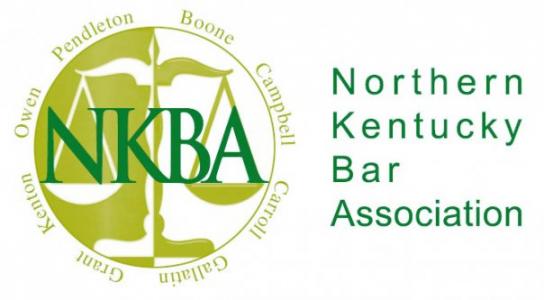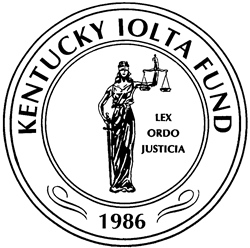Blog
Dog Bite Liability
“THAT’S NOT MY DOG,” SAID THE LANDLORD
In one of the “Pink Panther” movies, Peter Sellers in his role as Inspector Clouseau is confronted by a dog and asks a man nearby, in his inimitable faux-French accent, “Does your dog bite?”, to which the man replies, “No.” Thus heartened, Clouseau steps by the dog, which immediately bites him. Outraged, Cleaseau cries, “ You said your dog didn’t bite!” The man replies, “That’s not my dog.”
The man whose dog didn’t bite had no concern about a dog who might bite, as he didn’t own it. But under Kentucky law that may not be a valid defense.
This blog will consider three scenarios which illustrate the care that must be taken to prevent dog bites. First, the liability of the actual owner of a dog. Second, the liability of someone in actual possession of the dog but not the owner. Third, the liability of a landlord for a dog over which he has no control.
ACTUAL OWNER’S LIABILITY
It should be no surprise to anyone that you may be liable for injuries caused by your dog. KRS 258.235(4) provides that “Any owner whose dog is found to have caused damage to a person, livestock, or other property shall be responsible for that damage.” So liability is not just for a bite to a person, but also for injury inflicted by your Pit Bull on your neighbor’s Pekinese.
A dog does not necessarily get two bites. KRS 258.235(1) provides that “Any person, without liability, may kill or seize any dog which is observed attacking any person.” One exception is found in KRS 258.095(4), which defines “dog” as “any domestic canine, six (6) months of age or older.” One must speculate that this definition was designed to prevent puppies from being covered by the applicable statutes.
KRS 258.095(6) defines “attack” as “a dog’s attempt to bite or successful bite of a human being.” But if the person attacked is a trespasser or illegally on the owner’s property, then an injury to such a person is not deemed an attack.
Other provisions of KRS 258.235 refer to “vicious” dogs, but the dog does not have to be declared vicious before section (1) applies. KRS 258.235 contains provisions as to how a dog is to be declared “vicious” and what that declaration entails, such as fines and manner of confinement of the dog. That is beyond the range of this blog, but it should be noted that a charge for harboring a vicious dog may be made against the “owner or keeper” of the dog in question, which leads us to the next category of peril.
LIABILITY OF ONE IN POSSESSION OF A DOG
KRS 258.095(5) defines an “owner” in a way that covers a broad range of people:
“Owner,” when applied to the proprietorship of a dog, includes every
person having a right of property in the dog and every person who keeps
or harbors the dog, or has it in his care, or permits it to remain on of
about premises owned or occupied by him.... [Emphasis added]
So, what do the several emphasized phrases mean? If you have a property right in the dog, you are an owner. One possibility of that burden is if you and your estranged spouse own a dog and the other has it in his or her possession. You still have an ownership interest, so if the dog in the possession of the other spouse bites someone, you may be liable.
If you “keep or harbor” a dog, you are an owner, so be careful about taking care of your neighbor’s dog while he is on vacation. And “in his care” has been construed broadly. In Jordan vs Lusby, 81 SW3d 523(Ky.App. 2012), a dog groomer was bitten by a dog and sued the owner. The groomer was determined to be an “owner” of the dog and the case was dismissed. The Court noted that the purpose of the statute was to expand liability to such persons as veterinarians and kennel owners.
The last critical phrase is “premises owned or occupied by him”, which leads us to the final area of discussion.
LANDLORD’S LIABILITY FOR A DOG ON THE LEASED PREMISES
If you really own or control a dog, it is understandable that your failure to prevent an attack may make you liable for injuries inflicted by the dog. It is less intuitive that you might be held responsible if you are renting your house to someone who harbors a dog, but that is what the Kentucky Supreme Court held in Benningfield vs Zinsmeister, 367 SW3d. 561(2012). In that case, a small boy was attacked by a dog. The dog was owned by the son of folks who were keeping the dog in an enclosed pen in the backyard of a house rented from Zinsmeister. The dog escaped and attacked the boy on the sidewalk across the street from the house.
Zinsmeister lived next door and had knowledge of the dog’s presence, having first given permission for it to be on the premises, although they claimed to have later revoked that permission. In any event, they took no affirmative steps to ensure that the dog was removed.
Earlier case law absolved landlords from liability for such dog attacks, but the Supreme Court concluded that the cited statutes meant that a landlord could be liable, because he or she had a better understanding of the possible problems in harboring a dog:
"Moreover, the statute is clearly part of a scheme to displace or abrogate the common law rule on dog-bite liability in part to expand liability, presumably to create incentives for various actors to take steps to reduce the chances of dog bites. It makes sense, then, to include landlords, who are more likely to be responsible and to foresee future problems than many tenants. While an irresponsible tenant may only want to keep a dog because of companionship or security, without thinking about the difficulty and danger that such an animal might pose, a landlord with more to lose is more likely to anticipate the danger and difficulty, however rare, and plan for such a contingency."
Such plans could range from barring dogs from the property, and thus preventing the problem from ever occurring (or at least decreasing its likelihood, notwithstanding a tenant who acts in violation of the lease), to purchasing adequate insurance, which could be used to pay for injuries after the fact. That these are mere possibilities does not mean the legislature did not act in light of them. And in its most natural reading, the statutory scheme does reflect this type of policy concern. By including responsible landlords under the umbrella of dog owners, at least under some circumstances, and thereby extending liability for dog attacks to them, the legislature decreases the likelihood of dog attacks, since many landlords will bar dogs (which will reduce opportunities for attacks), and increases the likelihood that an innocent dog-attack victim can be made whole, at least to the extent the law can do so.
But the Court went on to say that an attack does not always make the landlord liable. If the attack occurs “on or about” the leased premises, the landlord may be liable, the critical element being whether the attack was “on the property or so close to it as to be within immediate physical reach.” Since this attack occurred across the street from the rented house, the Zinsmeisters were not considered owners and not liable; had the attack occurred on the sidewalk by the house, they would have been considered owners and liable.
The Court went on to discuss other scenarios in which a person might or might not be liable. For example, the operator of a dog park would not be liable for an attack because the park is not the site of the dog’s care or habitation. Since there must be an element of tenancy, it is unlikely that you would be liable when a friend brings his dog to your house for a social visit. But if you are keeping the dog for the friend, then: Beware of the Dog!
Authored by: Arnold Taylor







